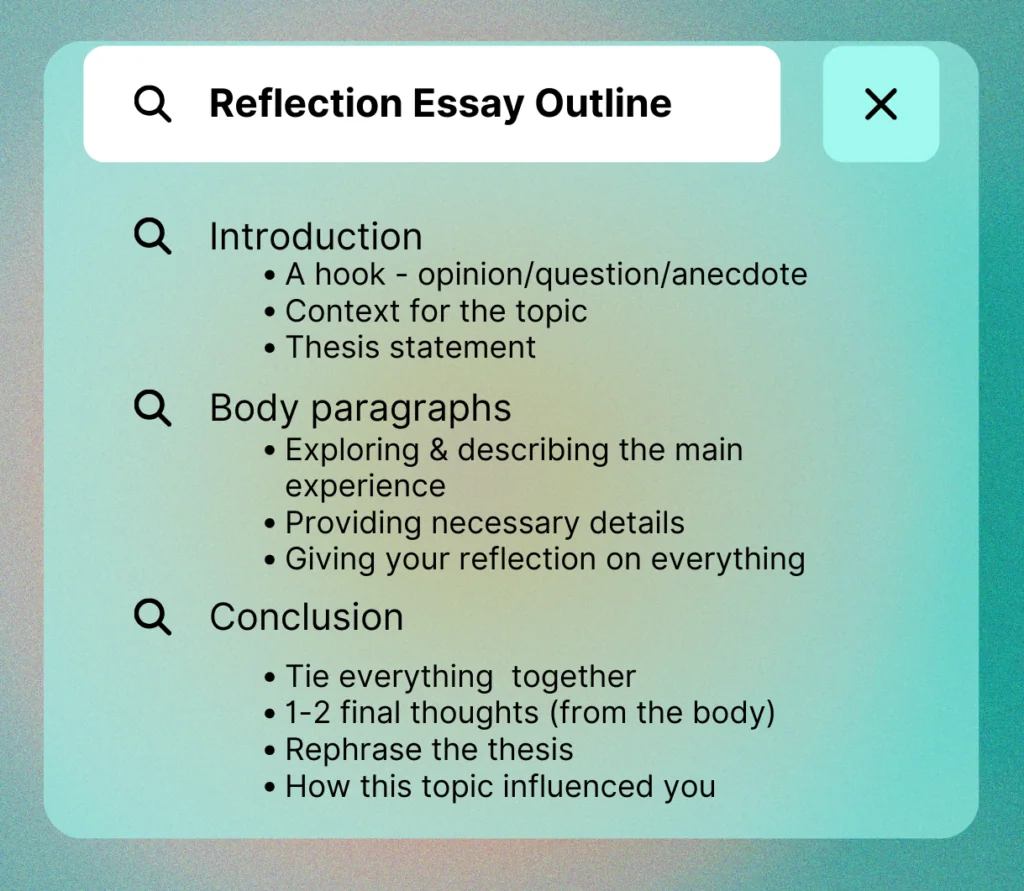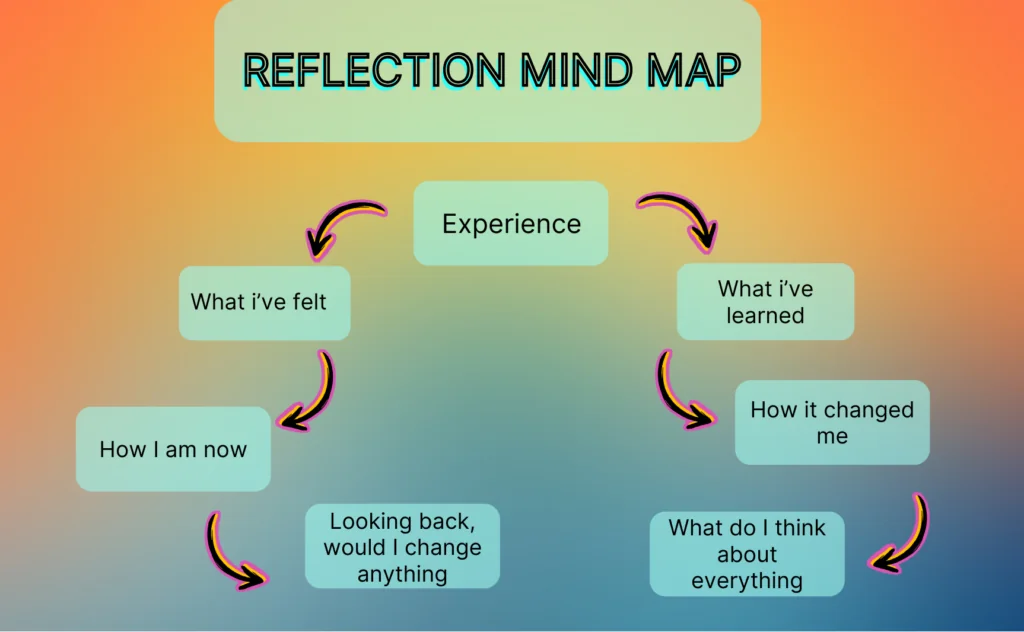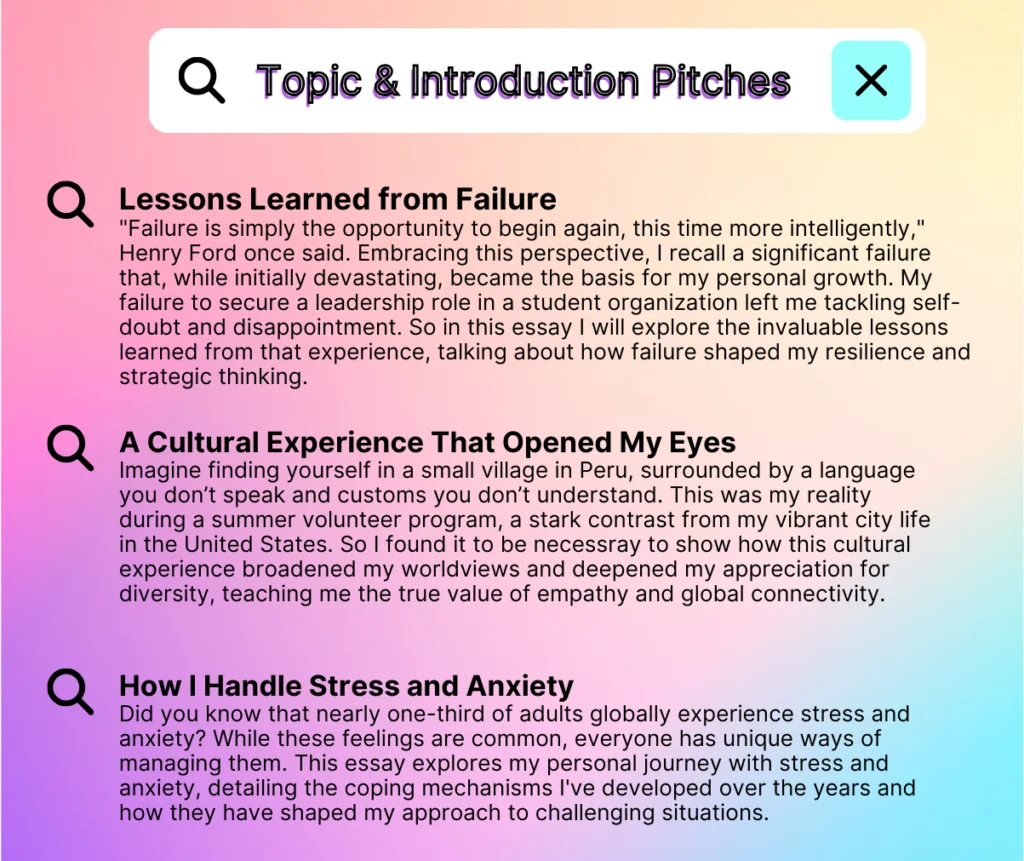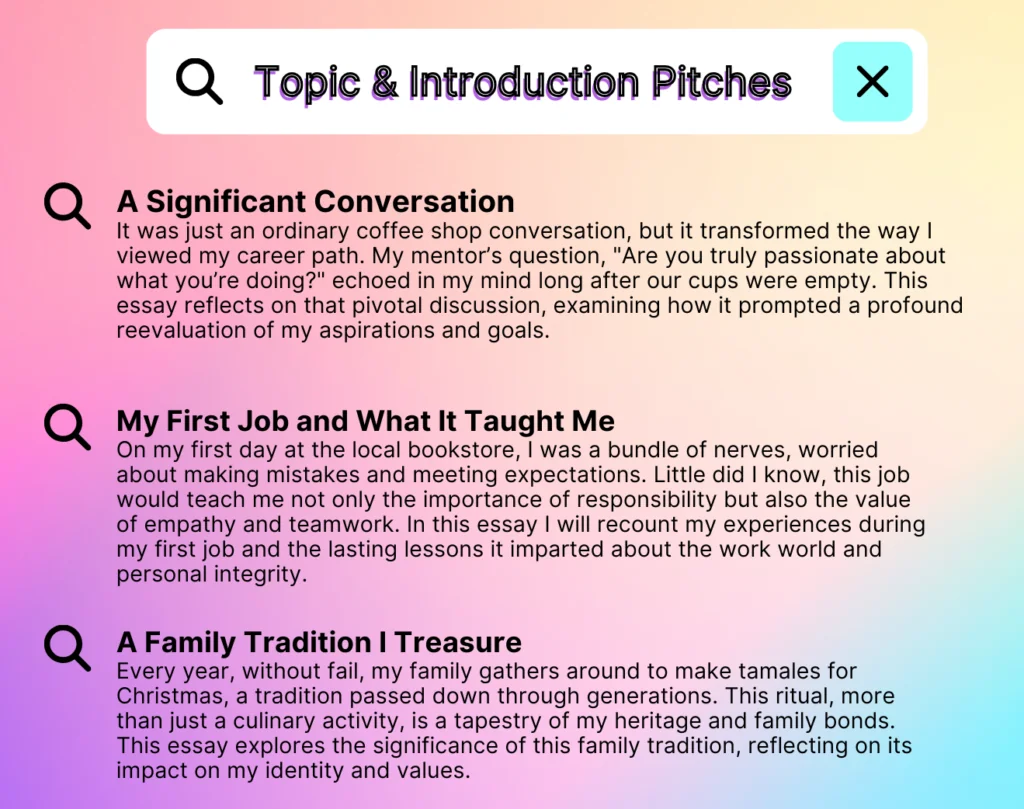You are probably already used to writing academic essays where you have to analyze and dissect specific topics, books, or pieces of research. But what if your professor asks you to write a reflective essay? Will you be able to do it? If you are not sure, then this guide is a must-read for you.

✅ AI Essay Writer ✅ AI Detector ✅ Plagchecker ✅ Paraphraser
✅ Summarizer ✅ Citation Generator
What is a Reflective Essay & How to Choose a Topic
What is a reflective essay? It’s a type of personal essay, that, nonetheless, is very similar to academic writing. In a reflective essay you, as a writer, explore a specific theme, topic, or subject, from your perspective. Basically, you give your own opinion on the topic, and explain why you think that way, often incorporating your personal experiences into this narrative. This type of paper is usually subjective, as its main purpose is to show your processing of something (event, book, lecture, anything).
Topics
As to the topic of such essays, they can be very versatile. You can reflect on a specific life experience you had, outlining what happened, what did you think of it, and what did you learn. Sometimes, your professors may ask you to write a reflective essay on how a lecture, book, documentary, or learning experience has influenced and shaped your life. You can even be asked to visit an exhibition, go to a museum, or watch a movie and then write a reflection paper about it. So the variety of topics that can be chosen for this type of work is vast, to say the least.
Yet, you are most likely going to be writing a reflective essay during your university application process or as a part of your cover letter. There you will have to discuss your background, and how your experiences turned you into a proper candidate for the program.
The Structure of the Self Reflection Essay: Creating an Outline
You may now think that you know everything you need to start writing your paper. Hold your horses though, because there are a lot of things we have yet to consider. The first one is the reflective essay structure. As with most academic papers from an Academic Recommendation Letter Example to a biology report, your reflection essay should include an introduction, the main body, and a conclusion paragraph. Below you can see what an outline for the essay paper will look like, following such a format.

Introduction
An introduction is a greatly important part since it hooks the reader’s attention. That’s why here you need to include an opening sentence that gives the readers something to think about. This can be an opinion, a specific question, or a story from your life that relates to the topic of the essay. After your hook, provide a brief overview of the topic you will be reflecting on, and end the introduction with a thesis statement that outlines what your reflection will entail.
Body Paragraphs
In the body paragraphs, you specifically explore and reflect on the topic of your writing, You can compare experiences with the main one, and describe your emotions and scenes that a vital to understanding your perspective.
The body of your essay should be divided into several paragraphs, each focusing on a specific aspect of your reflection. There’s no specific number, as everything depends on how you write and what you write about. Usually, this can be from 2-3 to 4-5 paragraphs. Start each of these with a topic sentence that introduces the point you will discuss. Follow with an explanation of your thoughts and feelings, and support your point by integrating personal experiences or relevant examples. This is where you can dive deep into your reflections, analyzing how the experience affected you and what you learned from it.
Conclusion
As with any final part, the conclusion in the reflective essay should be straight to the point and give a sense of finalization of everything said above. Wrap up your essay by summarizing the main points of your reflection. Reinforce how the experiences discussed have impacted you and possibly what you plan to do based on these reflections. A strong conclusion will leave your reader with a clear understanding of your personal growth and a sense of closure.
A Detailed Guide on How to Write a Reflective Essay
Phew, we got the theoretical part down so now we can peacefully move forward to writing. Of course, you can just create an outline and write as the ideas pop into your head. Let’s be clear though, with such a strategy you can be waiting for relevant insights anywhere from 5-10 minutes to an hour or two. So, to make the process more effective, we came up with a guide that will help you craft your reflective essay gradually, keeping a consistent pace.
Step 1: Choose Your Tone & Topic
First, decide on the tone that suits your reflective essay. Since this type of essay is more personal, a formal tone isn’t necessary. Hence, you can write using personal pronouns like “I”, and “me” as well. Choose a topic that deeply resonates with you—this could be a personal experience, an event, or an interaction that has significantly impacted you or your current life. Here, think about the points and emotions associated with this topic to set the groundwork for your reflection.
Step 2: Work With the Materials
We know that reflection essays are mostly written on personal experience, however, it doesn’t mean that you don’t have to refresh your memories of those events. You can look up relevant photos, or maybe diary entries that you made during that period. It’s also a stage where you can ask yourself some critical questions to deepen your understanding:
- How has this affected me?
- What have I learned?
- Are there any unresolved questions/emotions?
Use this analysis to develop logical themes and select a main topic that incites strong opinions or reflections.
Step 3: Map Out Your Reflections
Create connections between your analyzed material and your insights. Outline these connections in your draft so that your essay follows a logical structure. This will form the skeleton of your body paragraphs. If you are more of a visual learner, you can create a mind map that ties all your ideas together.

Step 4: Write with Personal Insight
Now, with a general theme, topic, and relevant supporting details (events, memories, emotions) in place, you can begin drafting your essay. You now know how to start a reflective essay – with an engaging introduction. Consider using a relevant quote or a compelling life story. As you move through your body paragraphs, be clear, and use vivid imagery and personal pronouns to express your reflections. Each paragraph should support your central theme with direct impacts and personal feelings, using specific language that shows the depth of both what you went through and the analysis of it.
Step 5: Conclude with Reflection
Wrap up your essay by reiterating the lessons learned and how the experience has reshaped your perspective. Highlight your “Aha!” moment to make a stronger support for your thoughts. Consider the further influence of your insights on your future actions or thinking.
Step 6: Revise and Reflect Again
You have everything on paper, so now you can work on perfecting it. Proofread your essay multiple times. Pay attention to grammar, logic, and the overall flow of your essay. Think about whether your essay captures the essence of your journey and make the necessary adjustments to achieve that.
Pay Attention To This When Writing a Reflective Essay
You have an idea about the structure, format, and the writing process itself. So, what more do you have to know? Well, we don’t say you must use the following information. These are more like tips that can help you stay on track with your writing and avoid some errors that may lead to numerous revisions (and who needs that, especially if you are writing for a college assignment).
- Keep the Length in Mind – A reflective essay is usually not that long and can vary from 200 to 800 words (in some cases, up to 1000). You might have to be specifically mindful of the word count if the essay is for an assignment (with a specific requirement) or application (no assistant will have the time to go through 5-20 pages of reflection).
- Don’t get too informal – When we were discussing the tone, we told you that there’s no need to be strictly formal. However, do not push the boundaries too far as well. It’s better to find the sweet middle ground where you can freely express yourself without adding unnecessary jargon, slang, or cuss words. Just, keep it professional.
- Include only relevant details – As you have a limited word count, you can’t really afford to go into much detail. So keep it relevant. Include only those arguments, events, and thoughts that largely contribute to your topic. Don’t add something just to simply tell about it. Everything should serve a purpose in your essay.
- Focus on one topic – At the beginning, you outline one specific subject that your essay is going to be dedicated to. So stay on track with it. If you discuss your family’s influence on you, don’t drag your friends into it as well. You know, stay focused, and you are going to avoid most of the p[itfalls we mentioned above.
Bonus tip: use other sources. Of course, the reflection essay touches upon YOUR experiences. But it doesn’t mean that you can’t use some kind of philosophical or psychological material to help you support your personal insights. You can use articles, or books you’ve read at the time or which you find relevant now. Believe us, this will show a well-rounded understanding and add depth to your reflective analysis.
Self Reflection Essay – Ideas Pitches
We didn’t want to tire you more with our reflective essay samples, so decided to include something different instead. Below, you will find topic ideas, as well as our suggestions for introduction paragraphs for these topics, that might inspire you to write a reflection essay of your own.
FAQ
Follow us on Reddit for more insights and updates.
Comments (1)
Welcome to A*Help comments!
We’re all about debate and discussion at A*Help.
We value the diverse opinions of users, so you may find points of view that you don’t agree with. And that’s cool. However, there are certain things we’re not OK with: attempts to manipulate our data in any way, for example, or the posting of discriminative, offensive, hateful, or disparaging material.






Every time I saw people’s highlight moments, I will lament the injustice of God. But looking at them from another angle, you will find that they have found the right direction through countless failures and attempts, and only then have they achieved what they are today. So I started to reflect on myself, why I am not as good as others? After seeing others succeed, I become self-doubt, afraid of failure, afraid of stepping out of the comfort zone, so how can I doing well? I recently saw a passage that I like very much: “Everyone’s flowering period is different. Some people graduated at the age of 22, but waited for five years to find a good job; some people graduated at the age of 28 and entered the world’s one of the top 500 companies in the year; some people started their own company at the age of 30, but passed away at the age of 60; some people became executives at the age of 60, but lived to the age of 90; Some people built their family at the age of 25, but unfortunately return to single after ten years; some people get married at the age of 35 and live a happy life all their lives.”So I started to stop being anxious, learning not to feel dim when seeing other people shining.. After all, everyone got a different life experience card, so just enjoy the moment.